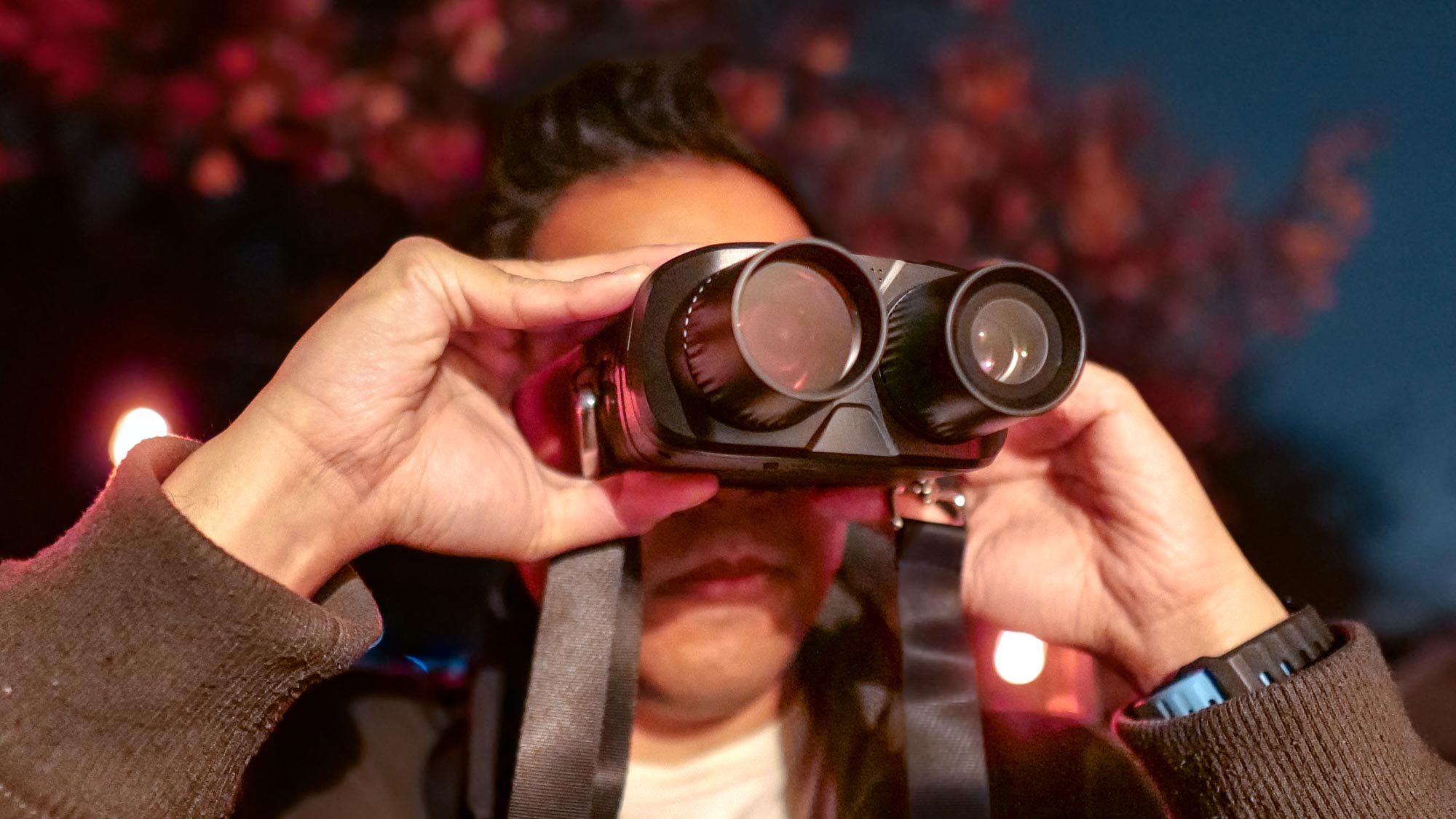
Everyone has their own theories about these New Jersey drone sightings, which have reached a fever pitch where I’m bombarded by blurry-looking photos and videos on all of my social media accounts. This phenomenon has everyone going out taking photos of these SUV-sized drones with their phones, but I cannot get over how many of them simply look bad.
Of course it doesn’t help that these occurrences happen mostly at night, and when paired with even the best camera phones that are zoomed to their maximum, you end up with stuff that looks like blobs in the sky. That’s why last night while I was doing some astrophotography outside in the dead of the night, I tried using a few gadgets to help me capture better images and videos of anything in the night sky.
After spending an hour in the freezing cold, I’m convinced that we’ll get a lot better-looking stuff with these New Jersey drone sightings. Since I’m in one of those hot spots of late in the Jersey Shore area, I’m bound to cross paths with one of these unidentified anomalous phenomena (UAP). Here’s how.
Night vision binoculars for clearer images
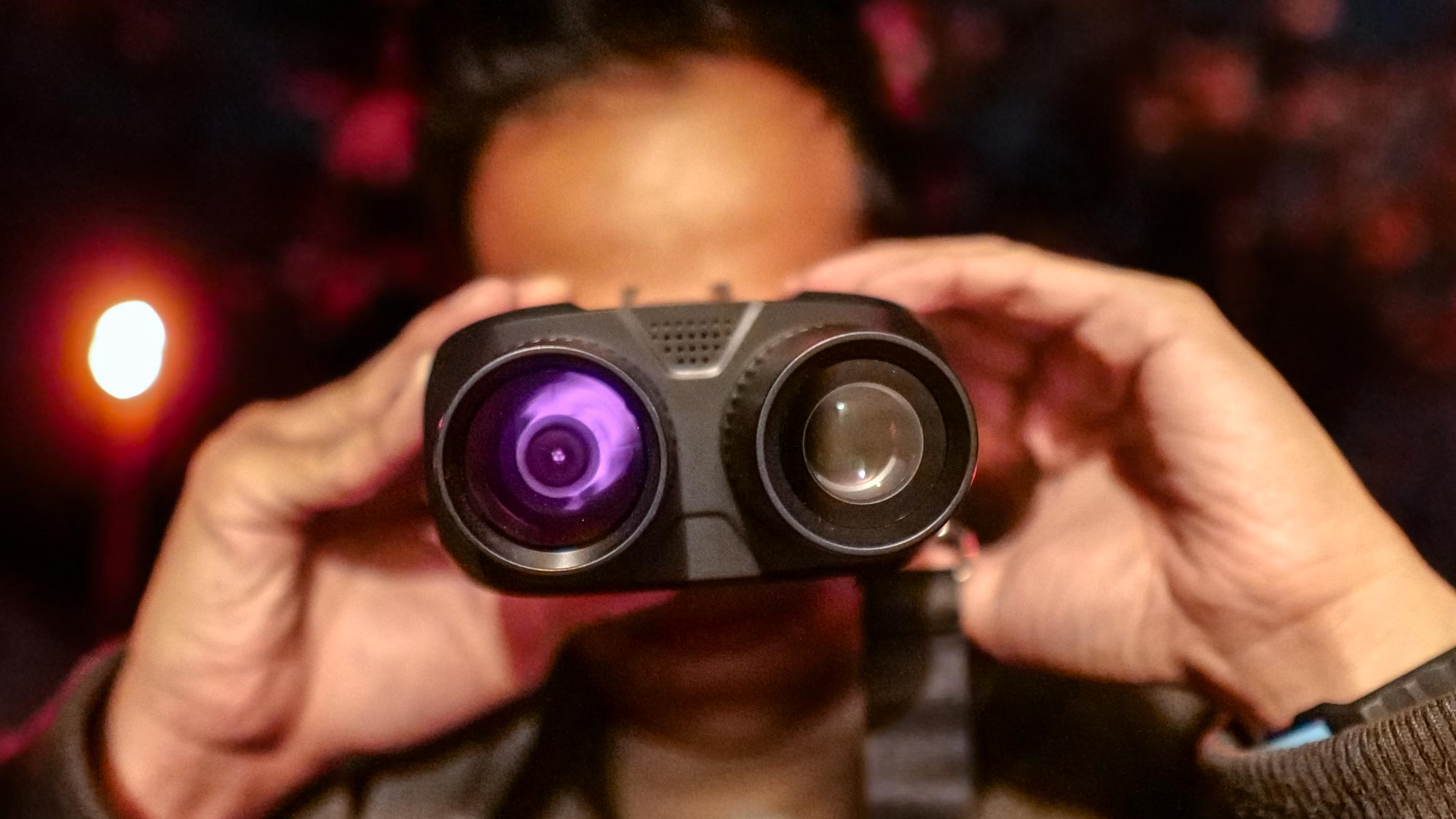
Just a little over a month ago, I first got acquainted with the Akaso Seemor 200 night vision binoculars. I’ve been using it to help out with my astrophotography because it better exposes all the faint stars in the night sky at night, plus there’s a color night vision mode that lets me see critters from far away while I’m outside.
Even though it functions exactly like any camera phone complete with 4K video recording, what makes the quality superior is how it features an 850nm infrared illuminator to keep details sharp and crisp — even when it’s pitch black or your subject is far away. Honestly, it’s astounding to see the results versus my camera. If you watch the clip below, you can visibly make out the contrails produced by the plane overhead, which is impossible to see against the darkness of the night sky.
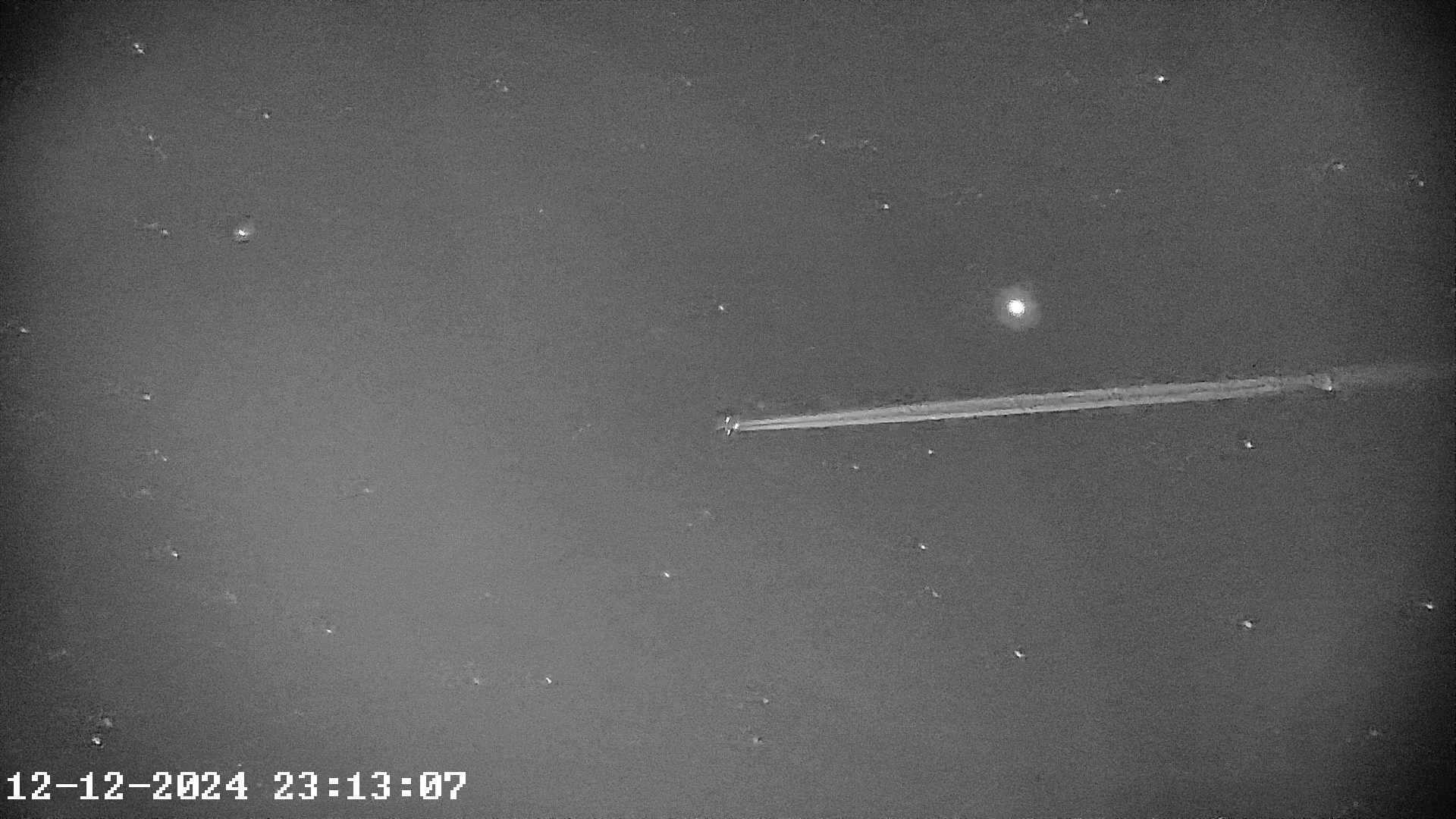


In a separate event, something flying closer to the ground came zipping overhead, but it didn't make the same noise as other planes that flew overhead. However, the Akaso Seemor 200 again indicates to me that it’s a plane because of the sharper looking footage it captured below.
Camera phones struggle immensely under low light due to their tiny sensors. Oftentimes, they record in higher ISO settings that results in heavy noise and softer details — which is why they look like blobs of lights. In contrast, night vision binoculars such as this are more suitable at retaining details
Thermal cameras to see heat signatures
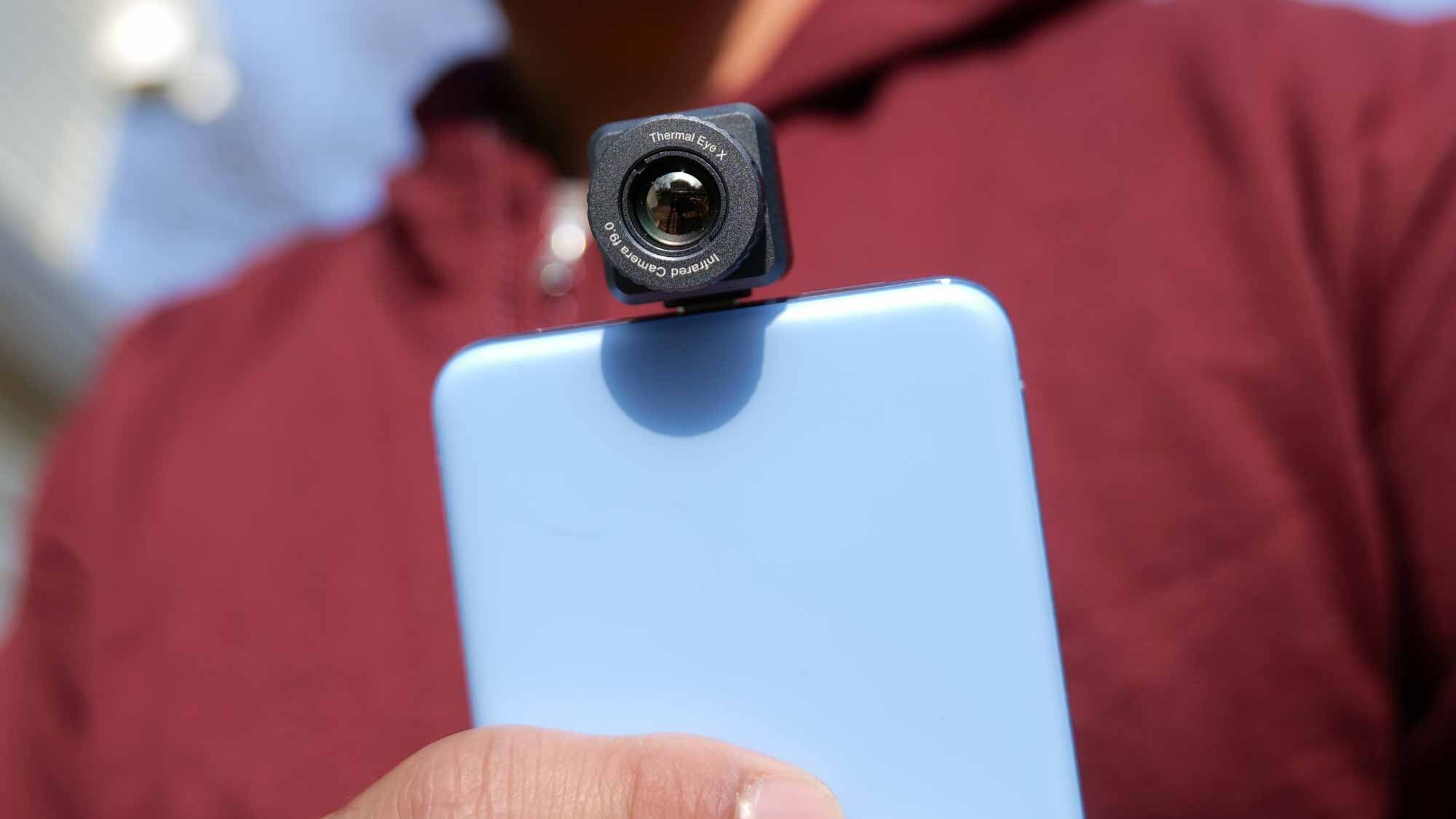
Something I’ve previously used to uncover hidden dangers around my home, the Infiray One XH09 thermal camera, is another one of those gadgets I didn’t think would come in handy for sniffing out unidentified objects in the night sky. Unlike the Akaso Seemor 200, this attachable thermal camera for my phone senses heat signatures — like having Predator vision.
This definitely helps to further identify objects in the night sky, especially if they’re flying lower to the ground. Consumer grade drones can’t fly higher than 400 feet AGL (above ground level) according to FAA regulations, so it’s easy for me to tell what is overhead with the Infiray One XH09 thermal camera because of the heat signature produced by the plane.


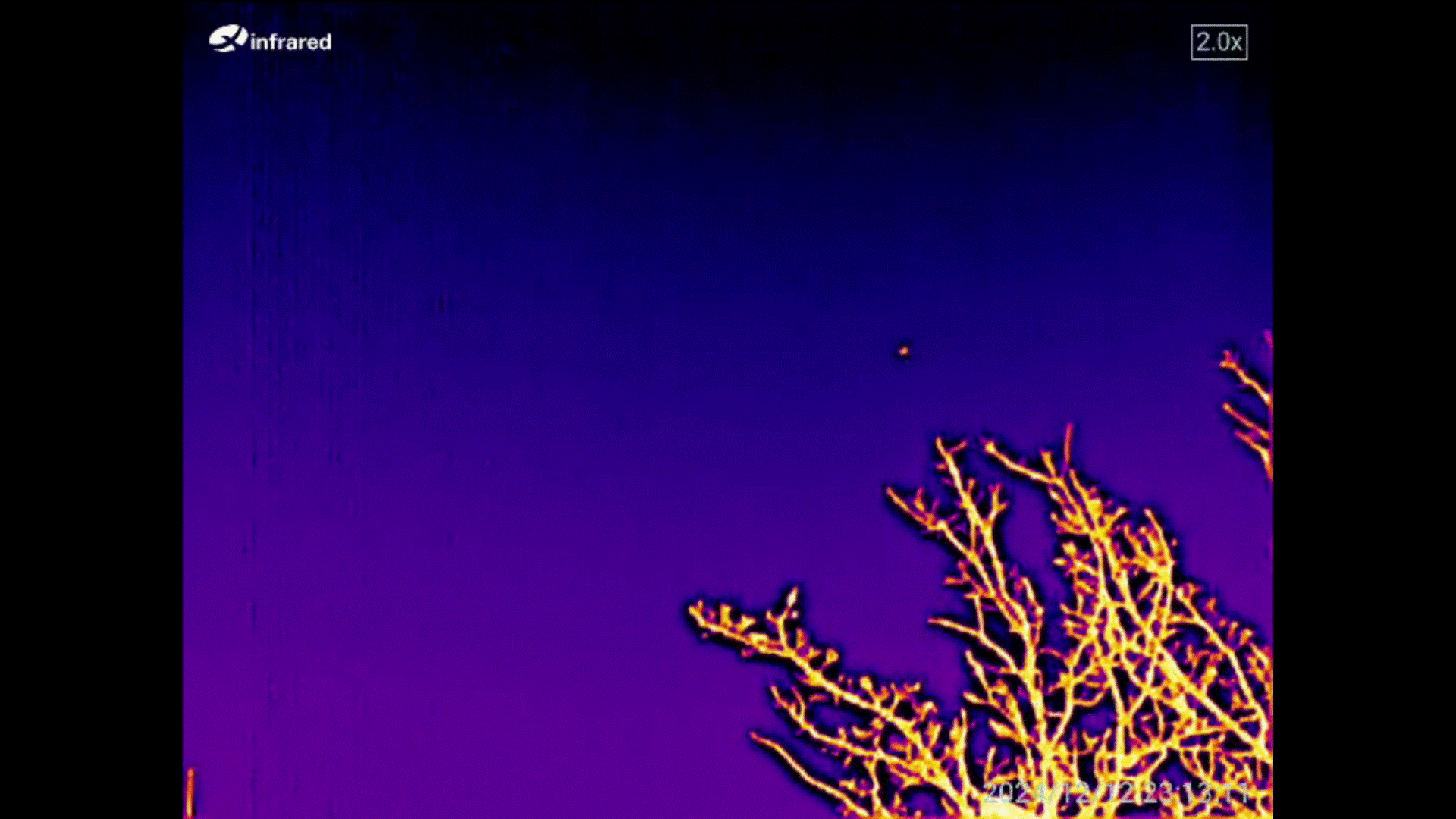
What I’m trying to get at here is that a gadget such as this would help to eliminate false sightings. When you can distinctively make out the outline of a plane such as the clip above, it would save a lot of time by focusing on just the ones that look different.
Even though some of the other planes I captured with this thermal camera appear as blobs, I think it’s still worth having on me because against the darkness of the sky, these unidentifiable objects would remain invisible to the naked eye.
Bottom line
Although I didn’t capture one of these mysterious drones in the night sky, I’m hopeful that when I do come across one, the images and videos I capture will be much better quality than my phone. The only next best thing would be to use a high-powered mirrorless camera with excellent low light performance, like a Sony A7 III paired with a long range telephoto lens, which would end up costing thousands of dollars and the experience necessary to master them.
Both the Akaso Seemor 200 and Infiray One XH09 cost much less and are easier to carry around with me, so I’m hoping that one of these nights I can share my best captures of these unidentifiable objects in the night sky.







